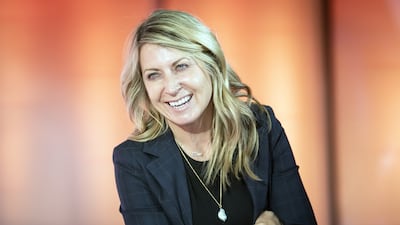The BBC News' chief executive Deborah Turness said that the corporation was stepping up efforts to tackle online disinformation as she warned that the growth of artificial intelligence could undermine public trust in its journalism.
Ms Turness set out her concerns over generative AI technology at a BBC Trust in News event in London last month.
Her comments come amid major strides in artificial intelligence, including the release of GPT-4 which has reportedly shown the ability to create news articles without sourcing or verification.
Other AI tools, such as Midjourney, are able to create fake but highly-realistic images that have been mistaken for the real ones by social media users.
“What is happening right now is nothing short of frightening. We have to act,” Ms Turness said during her speech last month.
“We are seeing the acceleration of AI have an impact on disinformation. It is amplifying everything that counterweights our good, true and valued journalism. Audiences live in a chaotic world in which they are consistently being bombarded with disinformation.”
The BBC would create a “forensic journalism hub” at its news headquarters where an in-house team of journalists will fact check and verify audiovisual content from around the world, she said.
These hubs will support the BBC's news outputs and will feature in live BBC on-air reports. Such moves represent an “existential shift” under way at the BBC, Ms Turness said.
“We will break open the process that’s going on behind the scenes to share it with audiences because they are seeing it in their feeds and we can’t live in a parallel world any more.”
BBC presenters and correspondents, including Ros Atkins and Marianna Sprig, have already incorporated live fact-checking into their reporting to tackle the large amount of disinformation on social media.
But Ms Turness said she want the news organisation to go further to “pull back the curtain” on how her journalists operate.
“We are working day and night. We want to pull back the curtain and we are here to deliver the gold standard in journalism,” Ms Turness said.
During her keynote, she claimed that her organisation spends more time and resources than any other to verify content, and was the “global leader” in “radically transparent journalism”.
“We want to show the work we do behind the scenes to show that we can be trusted,” she said.
“We are not very good at talking about it. We do it on the fringes but we are not opening ourselves up so that audiences can see what we do in the core of what we are delivering.”
It comes after the BBC suggested staff to delete the TikTok app from their corporate devices over privacy and security fears.
“We don’t recommend installing TikTok on a BBC corporate device unless there is a justified business reason. If you do not need TikTok for business reasons, TikTok should be deleted,” guidance sent to staff at the broadcaster said.
It comes after the social media app, owned by Chinese internet company ByteDance, was banned on government phones amid fears of sensitive data being accessed.


